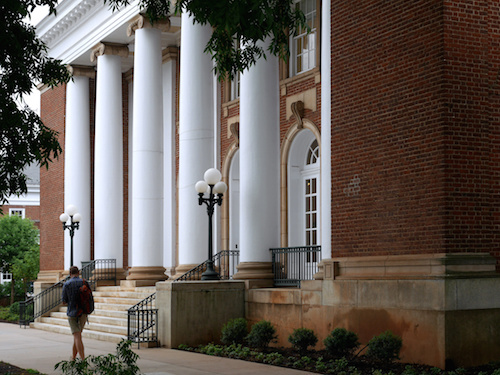 Evolution
Evolution
 Faith & Science
Faith & Science
 Intelligent Design
Intelligent Design
For a Troubled Student, Straight Talk on Intelligent Design

Writing at his site Reasonable Faith, William Lane Craig answers a poignant question from a Christian student at what sounds like it might be a Christian university: “Should Christians Accept Intelligent Design?” The student, Drew, has been hearing unexpectedly negative appraisals of intelligent design from professors. Drew figures that he, or they, may have misunderstood ID and asks Dr. Craig for assistance:
1) What is your definition of intelligent design?
2) Is intelligent design something that Christians should believe in?
3) If Christians should believe in intelligent design, then why do some people not believe in it? Are they just confused on the meaning of intelligent design?
It’s worth reading the reply, which is judicious and clear-headed. Craig answers the questions he’s asked, no more and no less, which is always a sound approach. He gets to the heart of what ID seeks to do: “Broadly speaking, we may say that ID is a theory of justifiable design inferences. That is to say, it’s a theory which seeks to answer the question: what justifies us in inferring that design is the best explanation of some phenomenon?”
Craig inclines to the view that ID is better classified under the heading of philosophy than science, but agrees that that isn’t the pressing question. The pressing question is whether the inference that the theory draws in the context of biology is true. For some helpful discussion, see Stephen Meyer here, answering the question “Is intelligent design science?“:
For more on the theme of “Is ID science?”, see our colleague ENV’s recent post, “Some Scientists Say Intelligent Design Isn’t Science — Until They Have to Use It Themselves.”
To cut to the chase, William Craig concludes:
So in response to your questions:
1) What is your definition of intelligent design? This is not the right question. We need to let ID theorists speak for themselves and not impose our meanings on their statements. That’s part of the problem! I’ve tried to explain above what they mean by Intelligent Design.
2) Is intelligent design something that Christians should believe in? Certainly, Christians must believe in (lower-case) intelligent design, since we believe in a provident God who has a plan for this world He has created. But belief in ID as a theory is not obligatory. One must assess the case ID theorists make and then decide whether to adopt all, some, or none of the tenets of ID, especially in application to biology.
3) If Christians should believe in intelligent design, then why do some people not believe in it? Are they just confused on the meaning of intelligent design? Of course, there is great confusion about ID. Some people wrongly take it to be religion or some form of creationism. On the other hand, as explained above, one may be an enthusiastic proponent of design arguments from nature without embracing all the tenets of ID. So you need to ask people who decry ID, “Exactly which tenets of ID do you reject?” That will tell you right away whether they understand what they are talking about!
That last point is particularly useful. I would guess that four out of five “critics” of intelligent design in science and the media could not tell you what the theory says and do not know what they think they are rejecting. Their criticism can rightly be brushed aside.
There, by the way, I’ve just eliminated four-fifths of scientific and media opposition to ID for you. You’re welcome.
Image: Sam Spiro / Dollar Photo Club.
